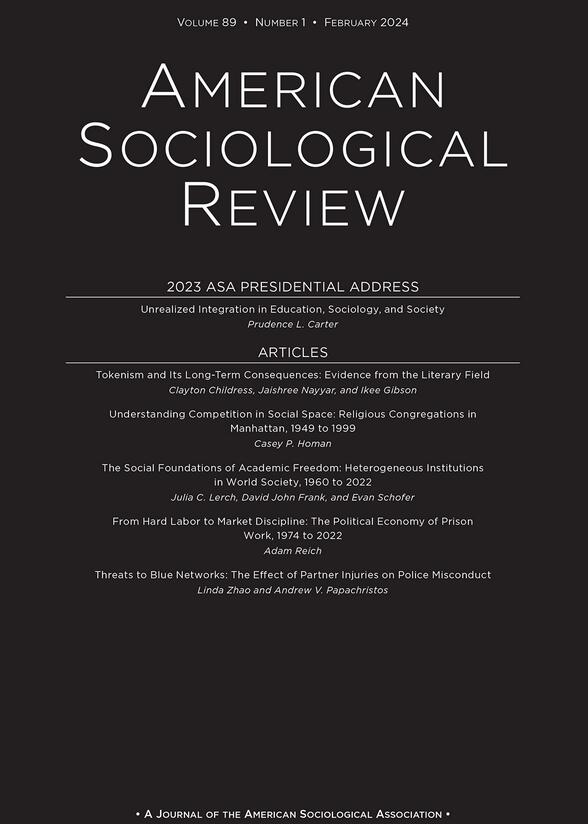Marching to Her Own Beat: Asynchronous Teamwork and Gender Differences in Performance on Creative Projects
IF 6.2
1区 社会学
Q1 SOCIOLOGY
引用次数: 0
Abstract
Women have traditionally been held back from performing to their full potential in creative project teams, where they typically constitute a minority. However, due to recent technological developments, the structure of teamwork is rapidly evolving. Specifically, teamwork is now often performed asynchronously: members of teams work at different times, by themselves, rather than simultaneously and together. How will this shift to asynchronous teamwork affect the performance of men and women on creative project teams? This article argues that women will perform better when teamwork is asynchronous rather than synchronous, because working alone will afford them greater freedom for creative expression. We argue that men will not experience the same boost in performance, and thus the spread of asynchronous teamwork has the potential to reduce gender disparities in performance. We explore this question in the context of folk-music ensembles in eastern India. After collecting ethnographic and interview data from folk musicians to develop our theory, we conducted a field experiment in which individual singers, men and women, recorded a song both synchronously and asynchronously with the same set of instrumentalists. This article contributes to the study of gender inequality, creativity, and the temporal restructuring of work.按自己的节奏前进:创意项目中的异步团队合作和性别差异
传统上,在创意项目团队中,女性通常只占少数,无法充分发挥她们的潜力。然而,由于最近的技术发展,团队合作的结构正在迅速发展。具体来说,团队合作现在通常是异步执行的:团队成员在不同的时间各自工作,而不是同时在一起工作。这种向异步团队合作的转变将如何影响创意项目团队中男性和女性的表现?这篇文章认为,当团队合作是异步的而不是同步的时,女性会表现得更好,因为单独工作将为她们提供更大的创造性表达自由。我们认为,男性在工作表现上不会得到同样的提升,因此,异步团队合作的普及有可能减少工作表现上的性别差异。我们在印度东部的民间音乐合奏的背景下探讨这个问题。在收集了民间音乐家的人种学和访谈数据以发展我们的理论之后,我们进行了一项现场实验,在该实验中,个人歌手,男性和女性,与同一组乐器演奏家同步和异步录制了一首歌。这篇文章有助于研究性别不平等、创造力和工作的时间结构。
本文章由计算机程序翻译,如有差异,请以英文原文为准。
求助全文
约1分钟内获得全文
求助全文
来源期刊

American Sociological Review
SOCIOLOGY-
CiteScore
13.30
自引率
3.30%
发文量
35
期刊介绍:
The American Sociological Association (ASA) is a non-profit membership association established in 1905. Its mission is to advance sociology as a scientific discipline and profession that serves the public good. ASA is comprised of approximately 12,000 members including faculty members, researchers, practitioners, and students in the field of sociology. Roughly 20% of the members work in government, business, or non-profit organizations.
One of ASA's primary endeavors is the publication and dissemination of important sociological research. To this end, they founded the American Sociological Review (ASR) in 1936. ASR is the flagship journal of the association and publishes original works that are of general interest and contribute to the advancement of sociology. The journal seeks to publish new theoretical developments, research results that enhance our understanding of fundamental social processes, and significant methodological innovations. ASR welcomes submissions from all areas of sociology, placing an emphasis on exceptional quality.
Aside from ASR, ASA also publishes 14 professional journals and magazines. Additionally, they organize an annual meeting that attracts over 6,000 participants. ASA's membership consists of scholars, professionals, and students dedicated to the study and application of sociology in various domains of society.
 求助内容:
求助内容: 应助结果提醒方式:
应助结果提醒方式:


